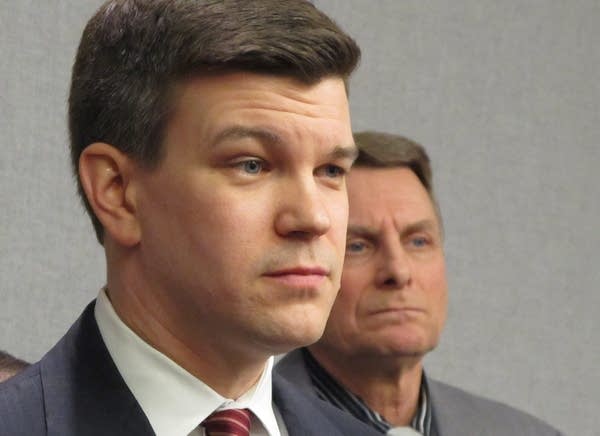Interest groups ready to fight tougher donor disclosure rules
Go Deeper.
Create an account or log in to save stories.
Like this?
Thanks for liking this story! We have added it to a list of your favorite stories.
Two legislative committees plan to debate a bill this week that would require some groups that conduct political activities to say more about their donors.
But while DFL leaders have thrown their support behind changes to the state campaign finance disclosure laws, they may struggle to find enough votes in their own caucus.
That's because a hodge-podge of interest groups that opposed the legislation last year still have concerns about the bill, even though lawmakers support key changes meant to assuage their concerns.
After an expensive 2012 election in which interest groups spent an unprecedented amount of money on fliers, ads and other election-season communication, the Campaign Finance and Public Disclosure Board asked the Legislature to give it broader authority to gather information about donors and spending.
Turn Up Your Support
MPR News helps you turn down the noise and build shared understanding. Turn up your support for this public resource and keep trusted journalism accessible to all.
Non-profits can skirt disclosure rules by avoiding using certain words in their ads, or by advocating for an issue rather than a candidate.
But the effort derailed in the House.

Minnesota Citizens Concerned for Life, a group that opposes abortion, was among those organizations that opposed the bill. Last year, it persuaded nine lawmakers, including Rep. Mary Sawatzky, DFL-Willmar, and Rep. Mary Murphy, DFL-Hermantown, to support an amendment that stripped the most controversial parts of the bill. The two legislators serve on the House State Government Finance and Veterans Affairs Committee.
Under certain circumstances, the new rules would require some groups to reveal their donors, who are currently able to give unlimited sums of money to such organizations without having their identities revealed.
MCCL and other groups contend that the new rules would be burdensome to comply with and have a chilling effect on free speech.
Both Sawatzky and Murphy have perfect voting records on issues that MCCL supports, and their support for the amendment preserved their scores, according to MCCL's 2013 voter guide.
Meanwhile, House Republicans said last year they would withdraw support for the bill if the language was preserved in the conference committee.
House Speaker Paul Thissen is working to drum up enough support for the bill. He said that the bill doesn't affect MCCL's core concern, which is abortion.
"Minnesota Citizens Concerned for Life, their central issue is around abortion," Thissen said. "The issue on campaign disclosure is not around that issue, and that's the conversation we need to have with our members."

The bill's chief sponsor, Rep. Ryan Winkler, DFL-Golden Valley, said the legislation can bypass the government finance committee this year because it doesn't cost the state any money.
Republicans also still have concerns about the legislation.
Rep. Tim Sanders, the top Republican on the House Elections Committee, said some of the reporting requirements will be burdensome for small groups. "We want everyone to be treated fairly, not just on the disclosure rules but on the penalties," said Sanders, R-Blaine.
Business groups still oppose the bill, as well, including the Coalition of Minnesota Businesses, a group that sent a slate of fliers in 2012 from its non-profit arm that would likely have to be disclosed under the new rules.
"We believe express advocacy language would create more problems than it would solve by implementing a test that is vague and subjective," said Charlie Weaver, executive director of the Minnesota Business Partnership.
"Further, the electioneering communications language will have a chilling effect on free speech by creating a new category of government-regulated speech that will discourage participation in citizen education efforts," said Weaver, who also oversees the Coalition of Minnesota Businesses.
Gary Goldsmith, executive director of the Campaign Finance and Public Disclosure Board, said he has been meeting with the opposing organizations to find common ground on the bill's details.
The Senate version of the bill passed last year included language that would exclude communications to members of an organization from the new disclosure rules.
Another compromise may include softening certain penalties and limiting the disclosure of information having to do with how organizations collect money from their donors, Goldsmith said.


